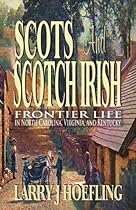

This book proves beyond the shadow of a doubt that the North did not go to war to free the slaves or end slavery. The North went to war because it faced economic annihilation and a Southern competitor that controlled the most demanded commodity on earth: cotton. The North's economy was based mostly on manufacturing for the South and shipping Southern cotton around the world. Cotton alone was 60% of U.S. exports in 1860. When the South seceded; the Northern economy began a dramatic collapse; and by war time; there were hundreds of thousands of hungry; unemployed Northerners in the street --- and the "tocsin of war" sounded. Economically ignorant Northern leaders then passed the astronomical Morrill Tariff that threatened to destroy the Northern shipping industry by rerouting trade away from the high-tariff North and into the low-tariff South. The Morrill Tariff was like pumping gasoline into an already raging fire. Abraham Lincoln was the first sectional president in American history. He was president of the North; and the North was clamoring for war. He saw an opportunity to start it without appearing to be the aggressor; so he took it. Thus; he started a war that killed 800;000 men and wounded a million. The idea that the good North was so outraged over slavery that they marched armies into the South to free the slaves is an absurdity of biblical proportions and this book proves it. This is an exciting; fast-paced 360 page book using over 200 sources with everything cited in footnotes and a bibliography. Part I proves that the economic annihilation of the North was what drove Lincoln to start the war. Part II proves the right of secession; which Horace Greeley believed in until he realized that secession meant an economic catastrophe for the North. Part III is the famous treatise by Charles W. Ramsdell; "Lincoln and Fort Sumter;" which proves conclusively that Abraham Lincoln started the War Between the States. Slavery was not the cause of the War Between the States; and this book makes the irrefutable argument. Here's what Dr. Clyde N. Wilson says about this book: Historians used to know - and it was not too long ago - that the War Between the States had more to do with economics than it did with slavery. The current obsession with slavery as the “cause†of the war rests not on evidence but on ideological considerations of the present day. Gene Kizer has provided us with the conclusive case that the invasion of the Southern States by Lincoln and his party (a minority of the American people) was due to an agenda of economic domination and not to some benevolent concern for slaves. This book is rich in evidence and telling quotations and ought to be on every Southern bookshelf. Clyde N. Wilson; Emeritus Distinguished Professor of History; University of South Carolina.
#390591 in Books Hoefling Larry J 2009-05-01Original language:EnglishPDF # 1 8.50 x .37 x 5.51l; .46 #File Name: 0982231326160 pagesScots and Scotch Irish Frontier Life in North Carolina Virginia and Kentucky
Review
14 of 14 people found the following review helpful. Tickled PinkBy Lilith RoswynI'm working on my family history and many of my ancestors are "Scotch Irish". Mr. Hoefling's book isn't very large; but it contains alot of information relevant to anyone of "Scots" and "Scotch-Irish" descent who is curious about where their forefathers (and mothers) came from and why; how they survived (or didn't); and the many ways those earliest pioneers contributed to the discovery; settlement; and building of America.9 of 10 people found the following review helpful. The book helped to clear up a few questions; ...By Patty CakesThe book helped to clear up a few questions; but brought about even more. Folks looking for some answers to Scots and Scotch Irish ancestry migration to the North Carolina; Tennessee Kentucky frontier might find some clues here.4 of 4 people found the following review helpful. I was disappointed only when I found my copy did not contain ...By Janet F. ShyjkaI found the information very helpful in understanding life in late 1700s. I was disappointed only when I found my copy did not contain all the appendices referred to in the book. Since my family came from that area I had hoped to perhaps find relatives listed in the appendix.